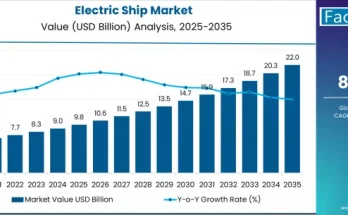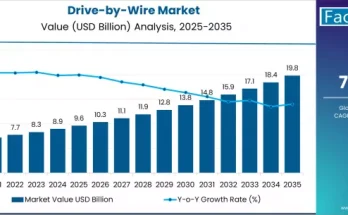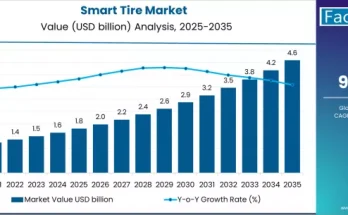Autonomous vehicles, or self-driving cars, are being developed and tested by a number of manufacturers across the globe. These vehicles use a combination of sensors, cameras and artificial intelligence (AI) to travel between destinations.
Industry’s development has pushed regulators across the globe to introduce policy frameworks and legislation to enable the safe experimentation and development of the technology.
Autonomous vehicles are complex and capital intensive technol0ogy. This requires funds and investments in continuous R&D. Moreover, Covid-18 has amplified this reality while making the feasibility of shared autonomous solutions unclear. Pandemic has a positive impact on the mobility that presents an opportunity to realize the ambitious vision of sustainable and inclusive urban mobility. To achieve this, it is crucial to coordinate efforts between the private sector and governments across the local and federal levels.
Also, lack of funds from big investors along with this unforeseen future and technological hurdles have led to greater acquisition deals, new partnerships, and consortiums.
Nowadays companies are competing to be the first to deploy commercial services in one of the dense and big cities. For instance, Cruise, Zoox and Waymo have collaborated and have been focused on their testing. Mobileye had announced testing in New York City and are planning to operate a driverless commercial on-demand service. Moreover, Firms such as Baidu, AutoX and Didi Chuxing are accelerating their testing through cities in China.
Tesla Inc. – Tesla is a reputed company for self-driving automobiles with cars such as Model S and Model Y as some of the most prominent Tesla vehicles. Tesla’s self-driving AI includes an FSD chip powers automated driving and focus on performance optimization and redundancy. This also includes neural networks and evaluation structures. Along with these intricate capabilities, Tesla’s radar and ultrasonic sensors contribute to vehicle’s safety. This also detects how far objects are and the distance between other cars.
Moreover, the automaker sells a $15,000 software add-on called “Full Self-Driving” (FSD) which enables its vehicles to change lanes and park autonomously. That complements its standard “Autopilot” feature, which enables cars to steer, accelerate and brake within their lanes without driver intervention.
Waymo – Waymo LLC, was formerly known as the Google self-driving car project, is an American autonomous driving technology company headquartered in Mountain View, California. Goal of Waymo is to eliminate human error leading to fatal crashes every year. Moreover, Waymo’s vehicles take advantage of real-time sensor data and highly detailed custom maps to know the exact location on the road. Moreover, Waymo’s camera and laser technology offers a closer view of the globe. Moreover, Using the latest server-grade GPUs and CPUs, the onboard computer can make intelligent decisions based on the sensors’ information and plan an efficient route for passengers to safely
Nvidia – Nvidia Corporation is an American multinational technology company incorporated in Delaware and based in Santa Clara, California the company’s chip technology provides redundancy and fail-over safety. The vehicle will go through many steps to ensure the decision is correct when driving. For example, it is helpful in planning efficient routes and evading objects on the road. Moreover, vehicles using Nvidia has 12 cameras, nine radars, and many other sensors scanning the road for potential hazards. Besides this, Nvidia’s tech can also compute at level 4 self-driving, paired with intelligent cockpit capabilities.
Zoox – Zoox offers outstanding automated driving technology to ensure passengers get to their destination. Moreover, Zoox’s implementation of cameras and radars also allow the vehicles to see all 360 degrees around and 150 meters ahead of the passenger. Besides this, Zoox’s technology comes with powerful computer systems paired with redundant backups. The company’s goal is to focus on the rare error cases in other AVs by using a web-editor tool.
Argo.ai – Established in 2016, Argo.ai’s software comprises of highly detailed 3D maps capable of safety and street awareness, such as the ability to decipher traffic signs and speed limits. Various leading automotive manufacturers such as Ford, Walmart, Volkswagen have been using Argo Autonomy platform. The AI also replicates the feeling of being inside a natural driving car as it brakes and steers the vehicle. The company’s goal is to replicate the driving experience as the vehicle can operate on its own as it equipped with machine learning and computer vision technology.
Aptiv PLC – Irish-based Aptiv, with Hyundai Motor Company, manufactures autonomous vehicles and technology through its joint venture, Motional. The company’s goal is to develop solutions that solve customer’s toughest challenges. The company is enabling the transition to software-defined vehicles supported by intelligent connected architectures. Motional offered the first robotax, the all-electric IONIQ 5, in 2021 and plans for the vehicles to be available through the Lyft app.
Luminar Technologies – Founded in 2012, the company has developed autonomous car sensors and software. The company has also collaborated with Daimler Trucks, SAIC, and Volvo. Volvo was initially the first major carmaker to install Luminar Technologies’s Lidar system as standard equipment in electrified flagship SUV in 2020. The company’s goal is to make autonomous transportation safe by enabling the first real-world deployments of autonomous and next-generation safety features at scale.
Pony.ai– Pony.ai is an autonomous vehicle technology company co-located in Silicon Valley, Beijing, and Guangz. The company offers AI-based solutions for improving the self-driving automobile experience. The company also intends to offer completely autonomous self-driving smart cars. The company’s technology enables it cars to be intelligent and allows them to manage complex city driving circumstances including bicycles, pedestrians and vehicles with ease.
May Mobility – May Mobility has established as a leader in self-driving automobile technology. Moreover, the company has partnered with state transit industries and cities. Moreover, the company has given over 300,000 autonomy-enabled passenger rides using their customizable AV service. Moreover, the company offers sensor technologies such as radar, multiple cameras, LiDAR, radar. This offers autonomous driving capabilities that ensures a clear 360-view of its surroundings. As Toyota, Bridgestone and Tokio Marine has collaborated together, the company’s goal is to offer unlocking insights for better and cleaner cities.
Yandex: Established in 2017, Yandex is an autonomous vehicle company that is surely going to make an impact in the coming years. The technology contains radars that sense objects around the vehicle while driving but also determine the speed at which they travel. Moreover, the software inside the vehicle takes the data points from their sensors and cameras and uses machine learning to plot a safe route. Also, Yandex plans to implement an automated taxi service that users can call to their location. Recently Yandex and Grubhub had partnered to introduce food delivery robots to many colleges in the United States.


